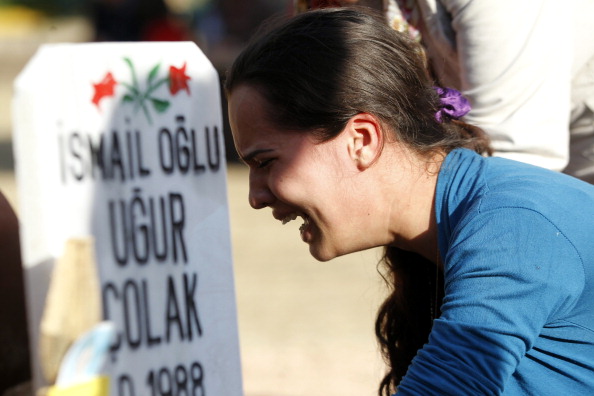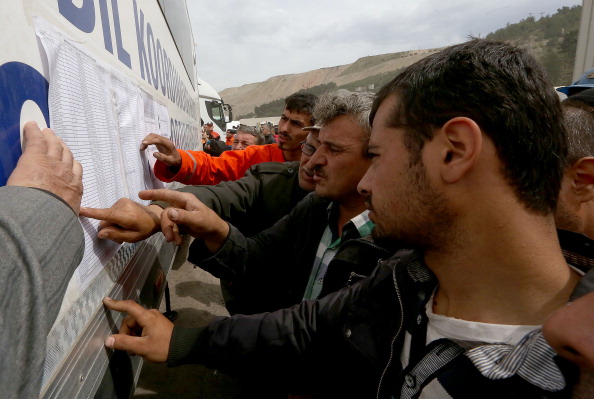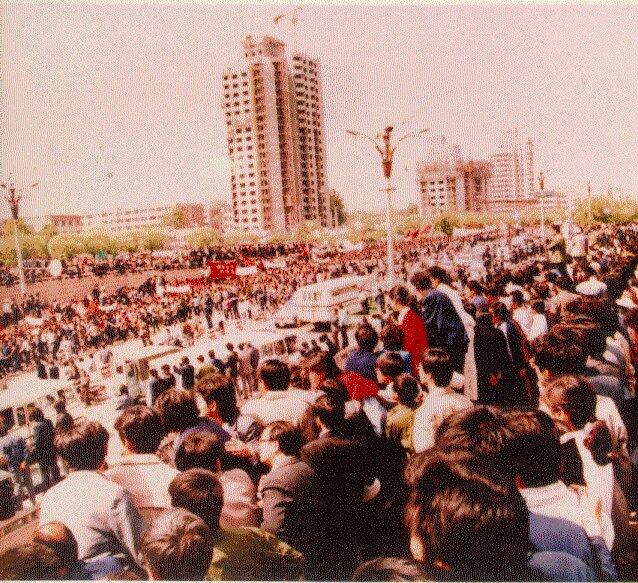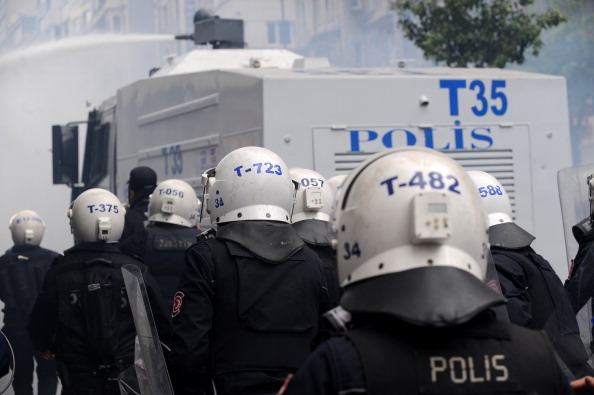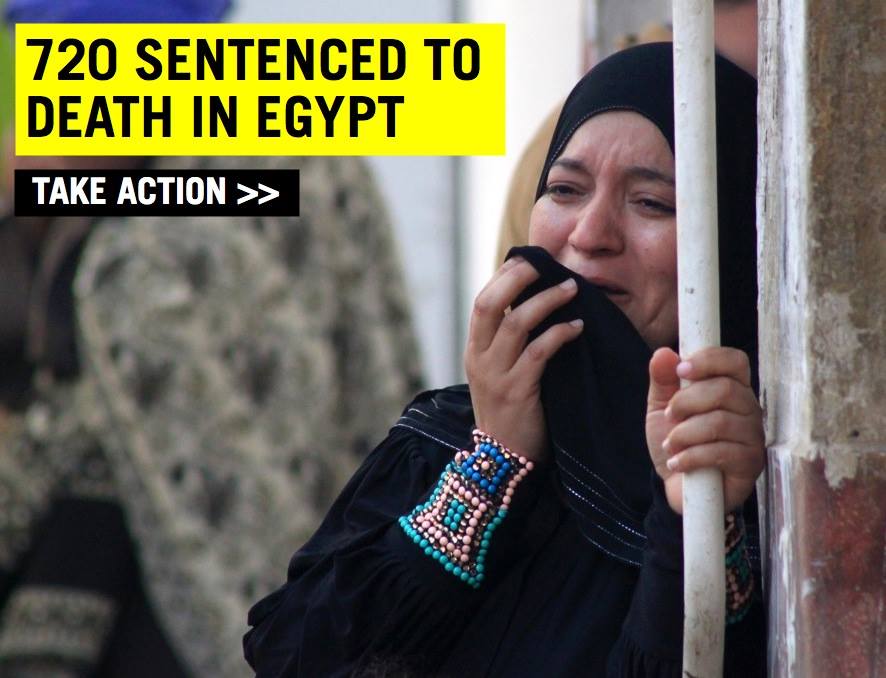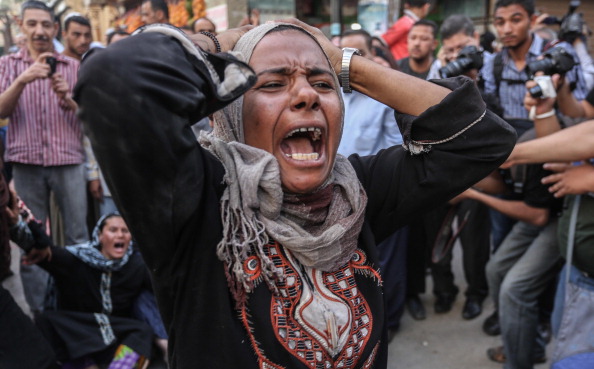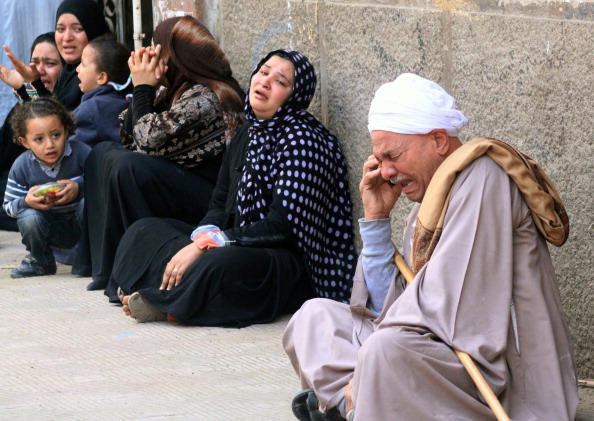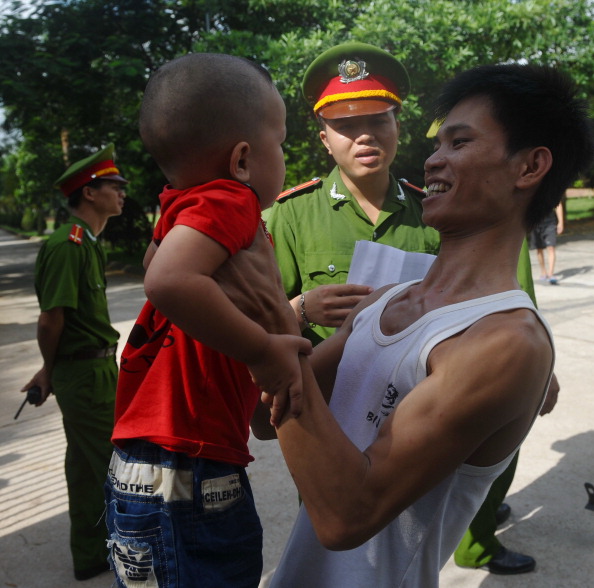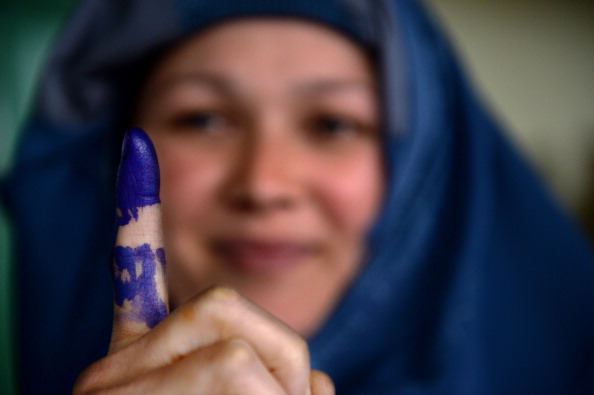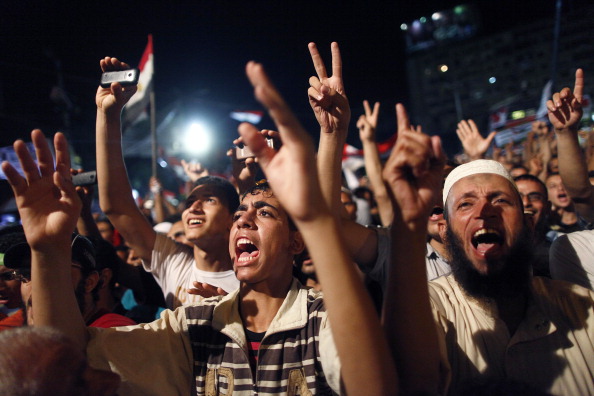
Haitham was randomly detained with others who had taken part in demonstrations against the military ahead of the third anniversary of the January 25 Revolution (Photo Credit: Mahmoud Khaled/AFP/Getty Images).
By Haitham Ghoniem, Egyptian Human Rights Activist and Researcher at the Egyptian Commission for Rights and Freedoms
It was in the first week of this April, before noon prayers, when the doorbell rang. My mother saw a muscular man dressed in a white shirt and trousers standing at the door. She was too scared to open it, especially as he looked like a military man.
He rang the bell several times. When no one answered, he asked our neighbor if someone named Haitham Ghoniem lived here. He questioned her about my whereabouts. Then he proceeded to scour the entire building.
My mother called and warned me not to come home ever again.
